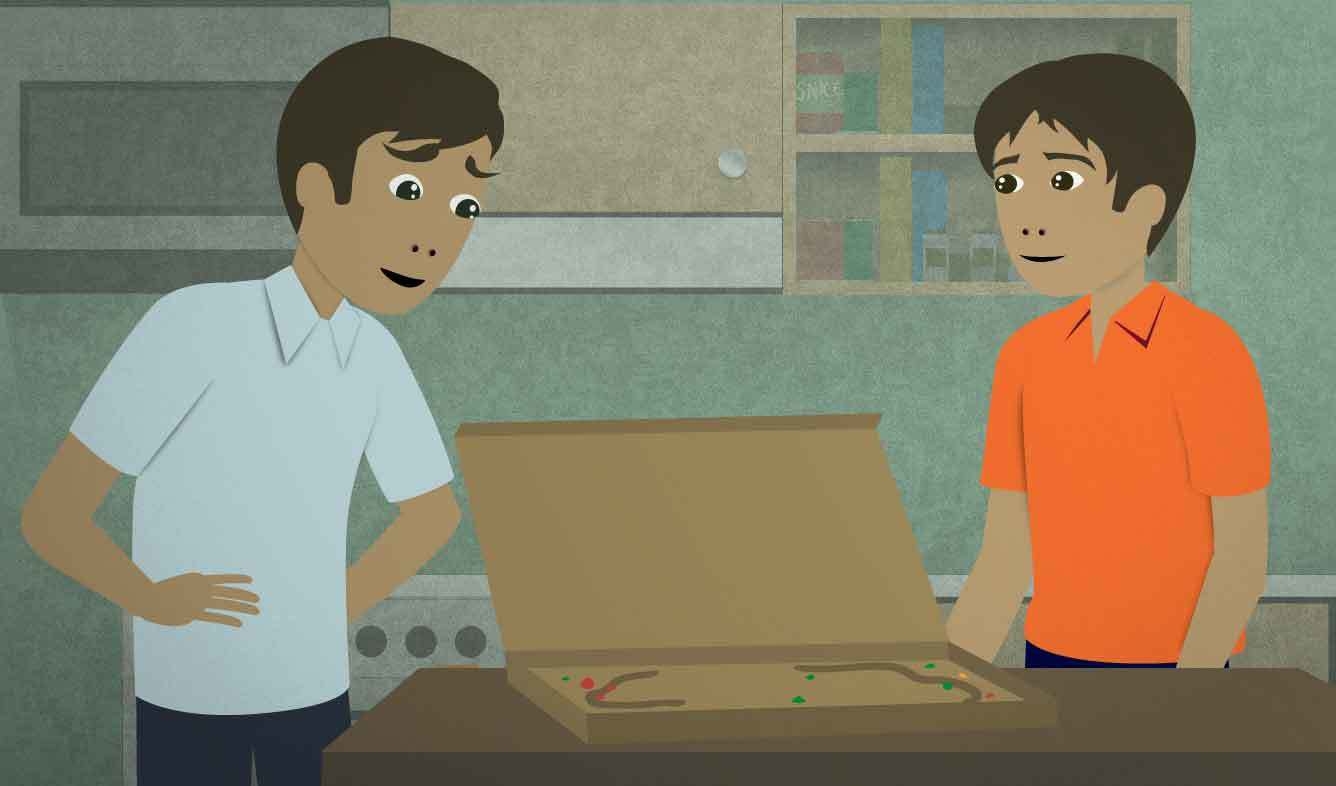“Dude, did you eat the whole pizza yourself?”
You see an empty pizza box in the kitchen. Your brother is the only person home, so you ask him if he ate it all.
Dude, did you eat the whole pizza yourself?
Want Video and Sound? Follow us on YouTube

the whole (something)
"The whole ___" means all of something. You use "the whole ___" when it seems like a lot, or too much. For example:
Did you eat the whole pizza yourself?
(do something) (oneself)
If you do something "yourself", you do it without paying for it or having someone else do it. For example:
Would you like a cookie? I made 'em myself.
This means that the speaker made the cookies at home, rather than buying them at a store. You use the phrase "I did it myself" for things that people usually don't make on their own.
To do something "yourself" is a little different from doing it "by yourself". When you do something "by yourself", it means that there is no one else with you:
I usually eat lunch by myself.
But doing something "yourself" just means that you did it, not another person:
A: Did you make that yourself?
B: No, my wife made it.
Dude!
People sometimes call each other "dude" in casual conversation. For example:
A: Dude, we've got to get going. We're going to be late.
B: Dude, chill out.
"Dude" is mostly used between two young or middle-aged men. However, women sometimes use it and people sometimes use it toward women too. Originally, "dude" was associated with surfers. In the past 30 years it has become much more common, but now some younger people choose other words to refer to each other like "bro".
People mostly say "Dude" at the beginning of a sentence. It's possible at the end of a sentence but less common.
Nice shot, dude.
